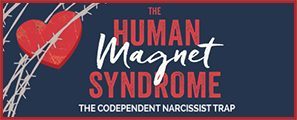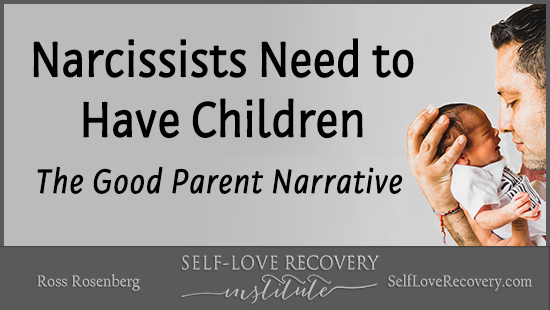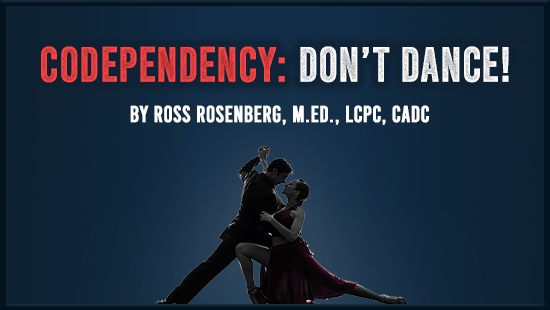By Ross Rosenberg, M.Ed., LCPC, CADC
Self-Love Recovery Institute – President/CEO
Psychotherapist, Educator, Author, Expert Witness
The following list matches each of the 11 Continuum of Self Values (CSVs) with a general personality description. These examples are only intended to illustrate the range of general personality possibilities according to the Continuum of Self Theory’s self-orientation concept.
-5 CSV: A codependent is completely absorbed with the love, respect, and care (LRC) needs of others, while completely ignoring and devaluing their own. This category of individual is often powerless, unable and/or unwilling to seek LRC from his romantic partner.
-4 CSV: A person with codependent tendencies. He is almost always focused on the LRC needs of others while only intermittently seeking to have his own LRC needs reciprocated or fulfilled. This person is able, albeit unmotivated, fearful and/or inexperienced in seeking LRC from his romantic partner. He often chooses not to ask others to fulfill his LRC needs, as he doesn’t want to upset others or cause conflict. If asking for some semblance of LRC from his partner, he does so nervously and with distinct feelings of guilt or neediness.
-3 CSV: A person who identifies with his caring and giving nature. He is predominately focused on the LRC needs of others, while often diminishing, delaying or excusing away the fulfillment of his own needs. This person’s identity and reputation is fused with his helping and caretaking nature. He is typically in relationships in which there is an imbalance between his partner’s and his own LRC needs – giving much more LRC to his partner than receiving. This individual is capable of setting boundaries in relationships while also asking for what he needs, however, he tends to feel guilty or needy when setting such boundaries or when asking for help from others.
-2 CSV: One involved in relationships in which his caretaking identity is valued and appreciated, but not exploited. He enjoys relationships with others in which he provides ample amounts of LRC, without wanting equal amounts reciprocated. He is able to ask for what he wants or needs from others, although is slightly uncomfortable doing so. He is comfortable with a partner who needs more LRC than he is willing to give in return. He is able to set boundaries and ask for what he needs when the LRC balance goes beyond his comfort level. He might experience mild feelings of guilt or neediness when asking his partner to meet his own LRC needs. As much as is possible, he avoids individuals who are narcissistic, exploitative or manipulative.
-1 CSV: A person with a healthy balance between loving, respecting and caring for self and others. He typically seeks life experiences and relationships in which he is able to satisfy his own LRC needs. He tends to participate and appreciate relationships that are based on a reciprocal and mutual distribution of LRC. Although he derives meaning and happiness when helping and caring for others, he does not tolerate a selfish or self-centered romantic partner. He often enjoys caring for others, but does not identify himself as a caretaker or helper. He does not experience guilt or feelings of neediness when asking for LRC from others.
0 CSV: A person who participates in relationships where there is an equal distribution of LRC given and received. They easily ask for what they need from their partners, while being open to their partners LRC needs. With their LRC-balanced relationships, they easily fluctuate between being the recipient and giver of LRC.
+1 CSV: A person with a healthy balance between loving, respecting and caring for self and others. They tend to participate and appreciate relationships that are based on a reciprocal and mutual distribution of LRC. This individual values personal and professional goals and ambitions, which they confidently pursue. Although he derives meaning and happiness through the pursuit of his own goals and ambitions, he is also cognizant of the necessity to love, respect and care for his romantic partner. He effortlessly provides LRC to his romantic partner when necessary or requested. He may identify with both the role of a caretaker or helper while wanting to fulfill his own goals and ambitions.
+2 CSV: A person who prefers to be involved in relationships in which the pursuit to fulfill his own ambitions, desires and goals is encouraged and supported. In a romantic relationship, he actively seeks attention, appreciation and affirmation. Although he is a go-getter and may be consumed with “getting the spotlight,” he is willing and able to fulfill his partner’s needs. He is neither exploitative nor selfish. As an individual who is more oriented toward his own LRC needs, he periodically forgets about the inequity of LRC distribution in the relationship. He responds favorably and non-reactively when his partner asks for higher levels of LRC. Although he can be comfortable in a caretaking role, he doesn’t maintain it.
+3 CSV: A mildly selfish and self-centered individual. He is predominately focused on the LRC needs of self, while often diminishing, delaying or excusing away the fulfillment of his partner’s needs. This person’s identity and reputation is fused with his need for attention, validation and recognition. He identifies with the persona of the go-getter and success-driven individual. He is typically in relationships where there is an imbalance in the distribution of LRC needs, expecting or taking more LRC than giving. If confronted about the LRC inequality, he may get defensive, but will be able to make corrections. He can modulate or control his self-centered and seemingly selfish attributes. Although he may be perceived as self-consumed and self-centered, he is willing and able to love, respect and care for his partner; he just needs frequent reminders.
+4 CSV: A narcissistic individual. This individual is absorbed and preoccupied with the LRC needs of self, while rarely seeking to fulfill the LRC needs of others. He comes across as being entitled, self-absorbed and self-centered, as he is driven to seek LRC from others, while giving very minimal amounts of the same in return. He is comfortable with the LRC disparity, believing his needs are more important than his partner’s. Although this person is overtly narcissistic, he is still able to give nominal levels of LRC to others. If confronted about the LRC inequities, he will characteristically get angry and defensive and is quick to justify his actions. He, however, does not experience a narcissistic injury or exhibit narcissistic rage when confronted.
+5 CSV: An Emotional Manipulator. Unable and unmotivated to love, respect and care for others. He is consumed with fulfilling his own LRC needs with no intention of reciprocating. He has great difficulty in exhibiting empathy, unconditional positive regard or love. When he does give LRC to others, it is typically conditional, with strings attached. He is not able to comprehend or accept his pathological levels of narcissism. When confronted about the LRC imbalances, he will often strike back with either direct or passive aggression.



